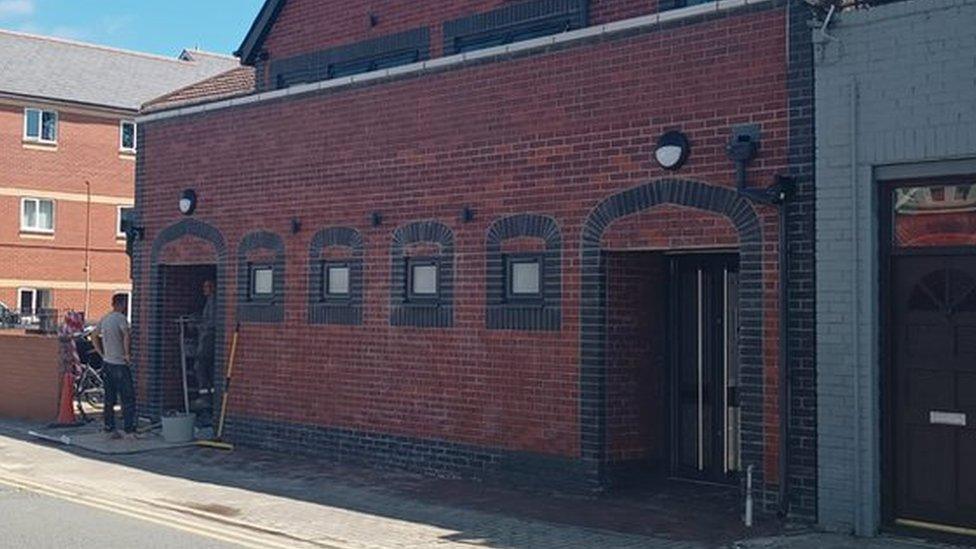Cost of Living: 'I tell my kids I'll buy it tomorrow - and hope they forget'
- Published
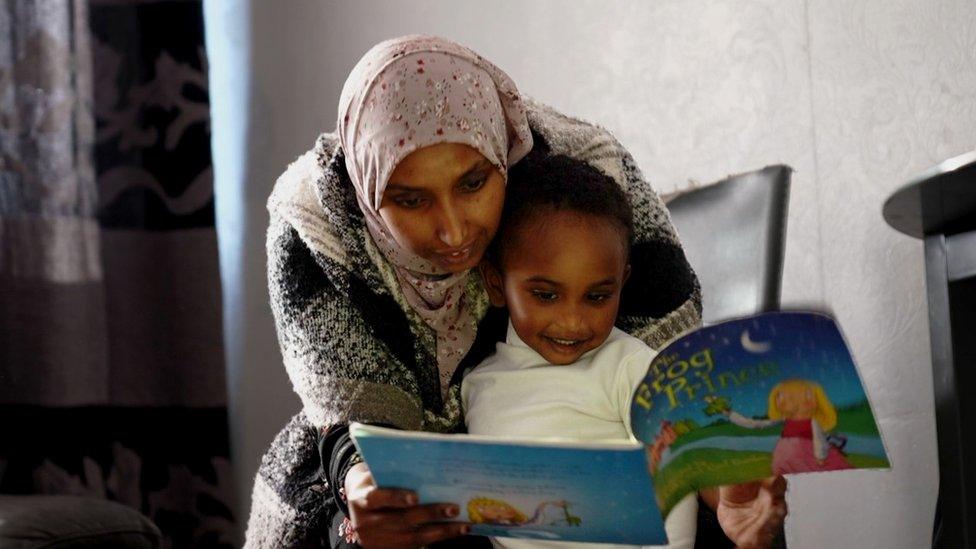
A charity that specialises in helping British Muslims with financial problems says it has been overwhelmed by demand for help. Requests for crisis grants are running at unprecedented levels, the National Zakat Foundation says.
"It's stark," says Dr Sohail Hanif, chief executive of the NZF. "Some of the stories we're hearing sound as though they're out of war zones, you can't believe they're from the UK."
The charity says requests for help are running at up to 2,000 applications per month, approximately double what it was last year. Due to the surge in demand, it is currently taking them up to four months to process an application - previously it took two weeks.
Successful applicants can get cash grants of around £600 for a single person and about £1,000 for a family with two children.
"People are running out of borrowing options," adds Dr Hanif. "They can no longer turn to family members. Ill health is very common. One bout of sickness can send the family below the poverty line, struggling to pay their bills.
"We're helping a lot of women with children, asylum seekers, victims of trafficking. There is no one demographic that's owning this."
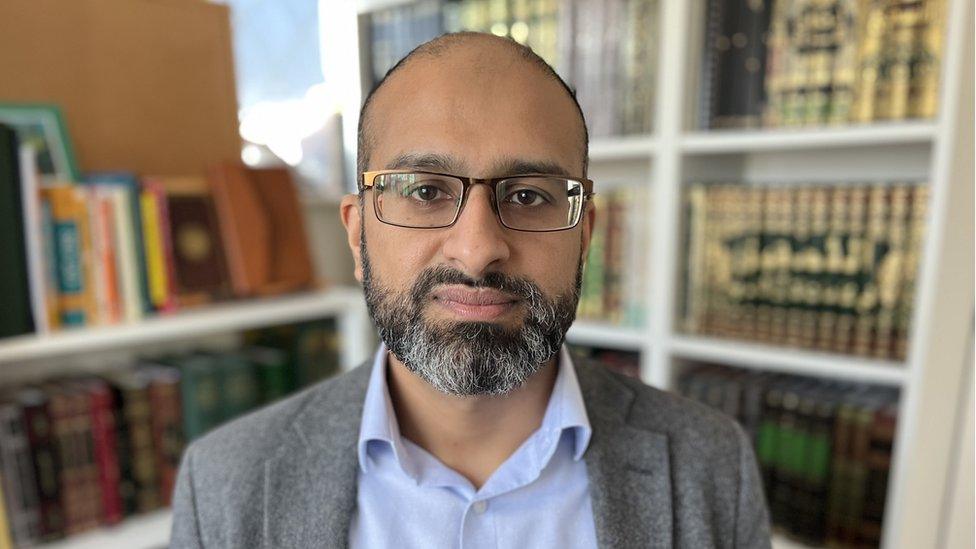
Dr Sohail Hanif says many members of the Muslim community are struggling with the rising cost of living
Many of those struggles were on display at a meeting the BBC attended at the offices of the Give a Gift charity, in Leeds.
Nine mothers, all Muslim, gathered to get advice and support on how to deal with rising prices. One, a mum-of-seven, said her family all slept in two bedrooms as the other two rooms in her home were too cold to use. Rising rents meant she couldn't afford to move.
Another said she was constantly stressed, worrying about money, and that her children preferred being at school to being at home as it was warmer.
'Life is not easy'
Berlin Mirre, a mother-of-five, said she had built up large debts as a result of being unable to make ends meet.
The family lives off £236 a week. She pays £66 a week towards her rent, and at least £50 a week on gas and electric. She regularly runs out of money before the week is out.
"Life is not easy now," she says, as her youngest child, two-year-old Ali, plays in another room. "My children don't understand - when they feel cold they just put the heating on. They ask 'can you buy this, can you buy that' and I often say I will buy it tomorrow and hope they forget."
She gets a weekly food parcel from Give a Gift, but worries constantly about her debts. "I pay as much as I can, but it's the minimum amount each month, and the interest is building up. I feel so bad. I don't sleep well at all.
"I think if I die, I will have to answer to God for that money. And who will pay after?"
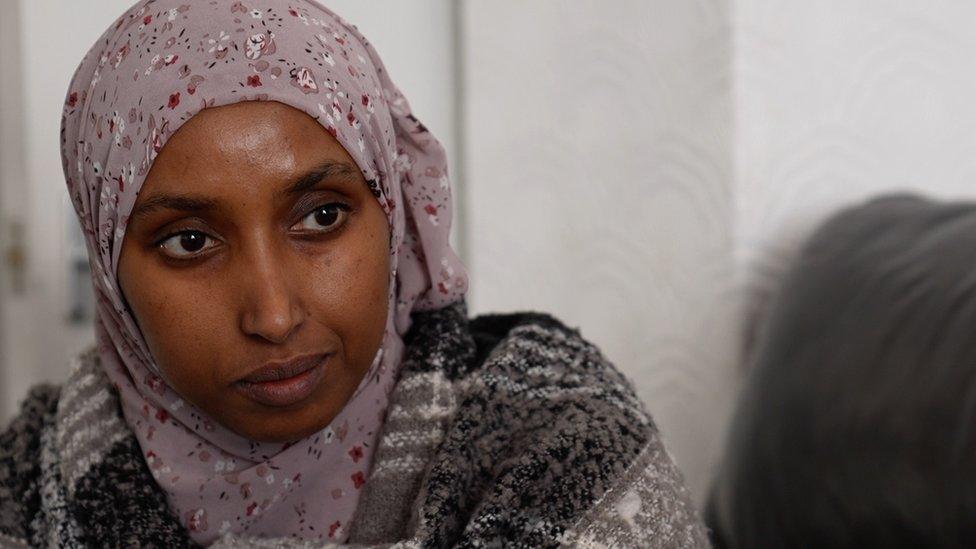
Mother of five, Berlin, worries about her rising debts
Figures released in January, external by the Office for National Statistics suggested 26% of Asian households and 46% of people described as "other ethnic groups" said they were somewhat worried or very worried about running out of food. The overall rate for Britain as a whole was 15%.
The figures do of course mask huge variations within different communities - charities say that people of Bangladeshi, Pakistani and black African heritage are struggling the most.
'Bigger crisis in this community'
"The level of need is so much greater now than it was during the pandemic," says Sufia Alam, who runs a food bank at the Maryam Centre, part of the East London mosque.
The mosque started distributing food due to Covid 19 and planned to stop the service last year but soaring inflation has meant it is busier than ever.
"The rising cost of living is a bigger crisis in this community," says Ms Alam. "This is a community that has always been in poverty, lived in overcrowded housing, that's really struggled with employment. And it doesn't help that everything is now so expensive."
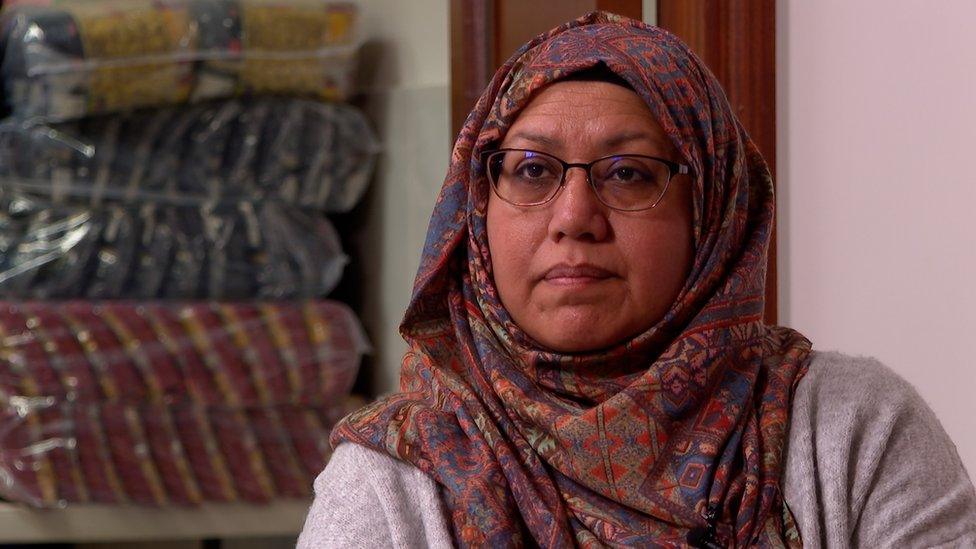
Sufia Alam, who runs a food bank at the Maryam Centre, says the cost of living crisis has hit a community already struggling
Despite the demand they're seeing, several charities say they believe the real need is even greater due to a lingering sense of shame within Muslim communities in asking for help.
NZF, which raises most of its money during Ramadan, which starts on 22 March, said British Muslims traditionally donate money to aid people suffering overseas.
More Muslims in the UK are beginning to realise there is growing need among their own communities at home, adds Dr Hanif, and donations increased last year.
But there is still a stigma for many. "There is no shame in asking for help, that's our message," he adds.
Related topics
- Published2 February 2023
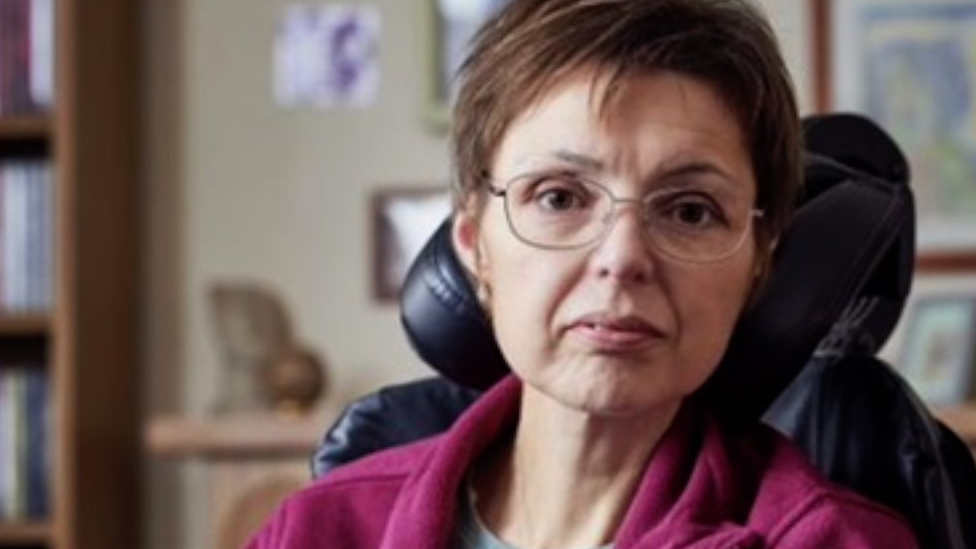
- Published30 January 2023
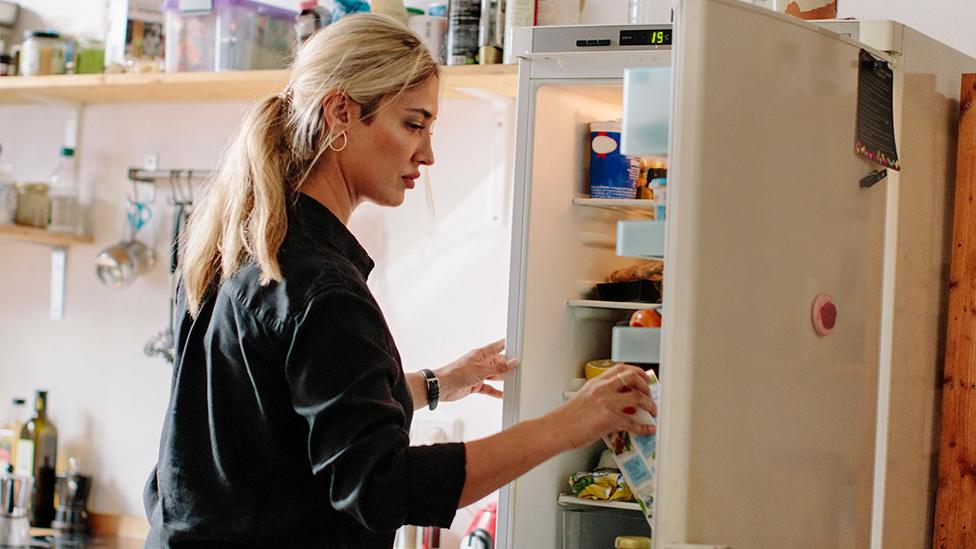
- Published8 July 2022
